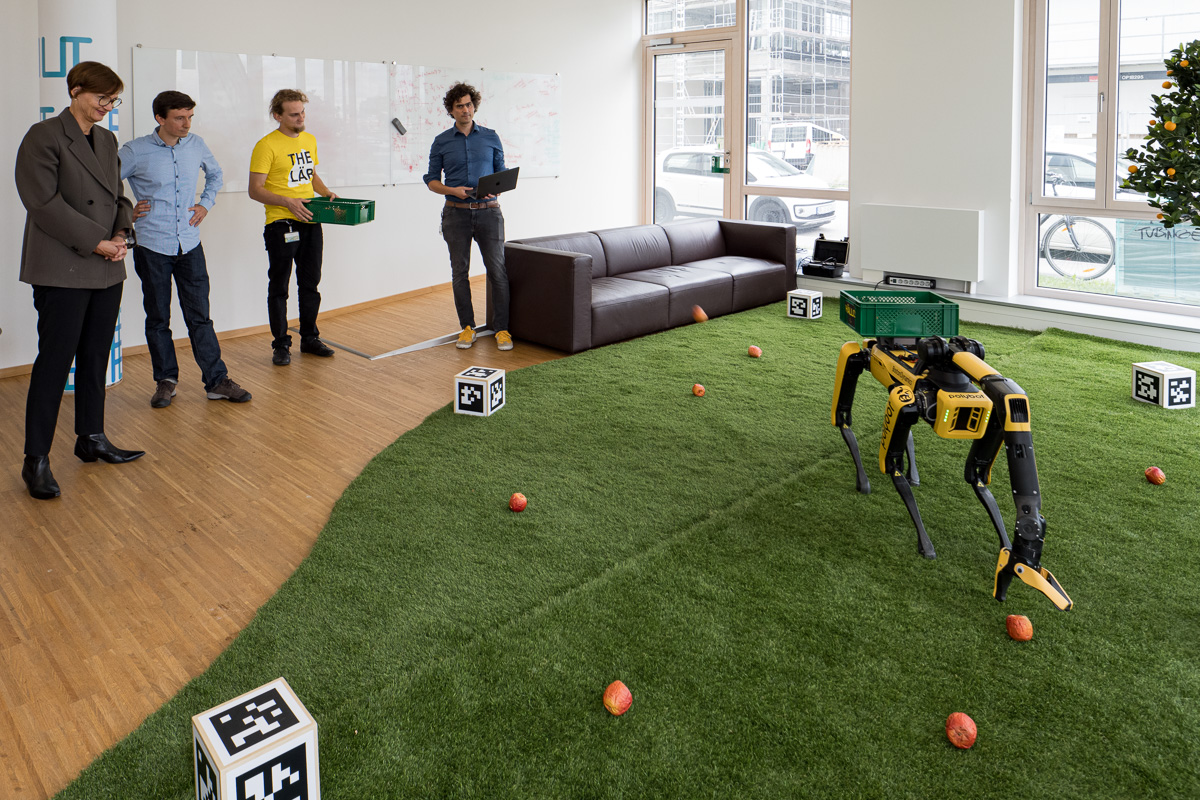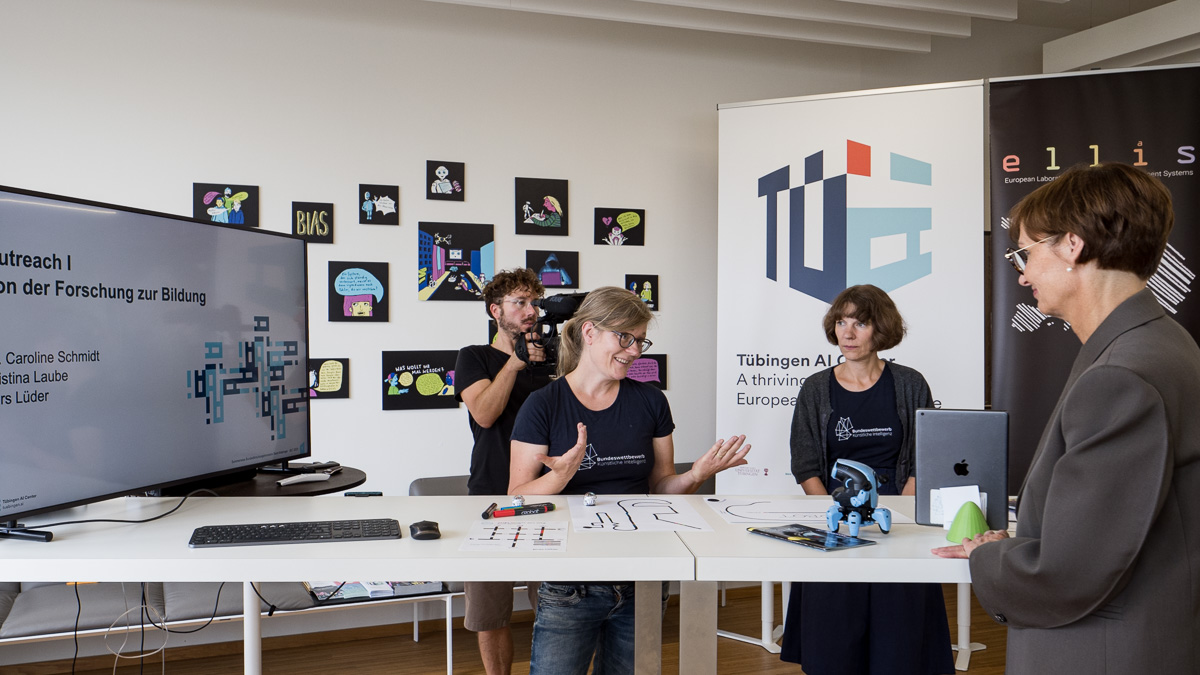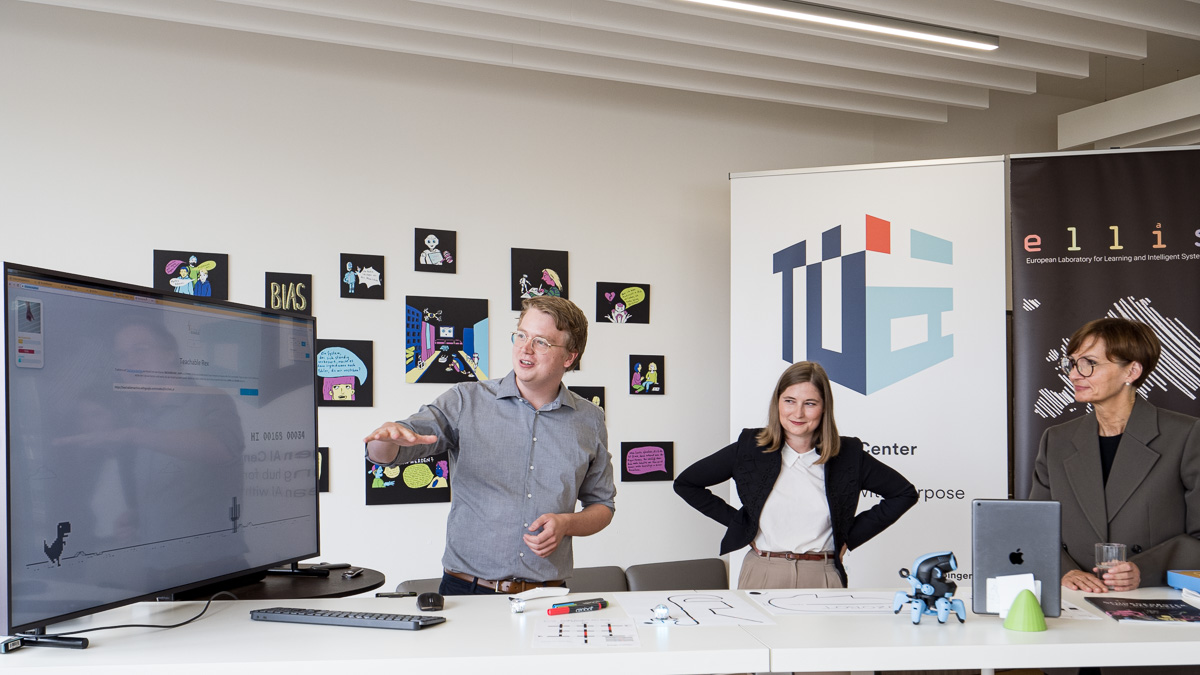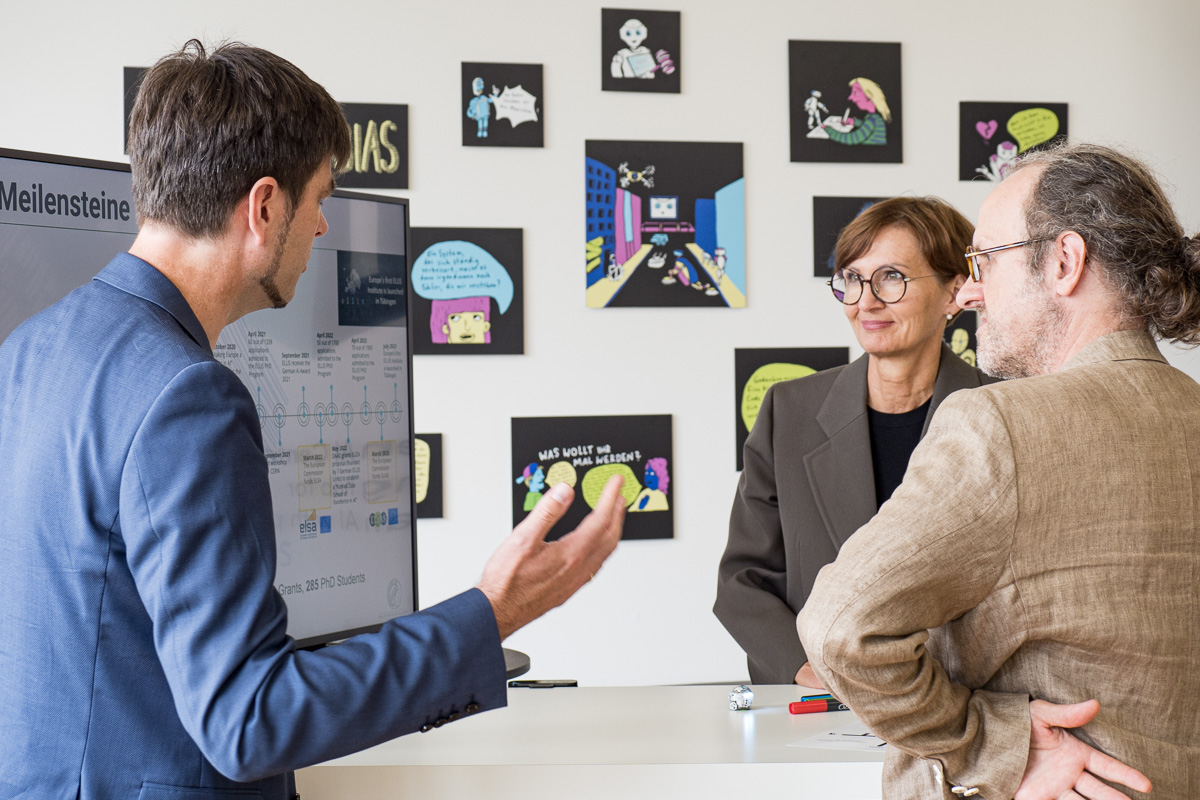Sustainable agriculture with Polybot, generating complex images with AI, programming with Ozobots, the Federal Artificial Intelligence Competition, an AI comic and the ELLIS network: the Tübingen AI Center presented all this to the Federal Minister of Education and Research, Bettina Stark-Watzinger, on July 28 during her visit as part of her summer trip.
The Prorector for Research and Innovation at the University of Tübingen, Prof. Dr. Peter Grathwohl, and the directors of the Tübingen AI Center, Prof. Dr. Matthias Bethge and Prof. Dr. Bernhard Schölkopf, jointly welcomed the minister. First, research group leader Dr. Wieland Brendel demonstrated the Polybot - a robot designed to enable low-cost sustainable agriculture with polycultures.

Then, Prof. Dr. Zeynep Akata, Professor of Explanatory Machine Learning and recipient of the 2023 Alfried Krupp Grant, showed the minister how dialogues with a large visual language model can be used to generate complex images faster and at lower cost than conventional AI image generators.
Research results should flow into education as quickly as possible - which is why the Tübingen AI Center addresses young target groups with offerings adapted to their age. These include the Federal Artificial Intelligence Competition (Bundeswettbewerb Künstliche Intelligenz), the Tübingen AI Makerspace, an online AI course or the AI comic "Chocolate Robots and Deepfakes," as Dr. Caroline Schmidt, Lars Lüder and Kristina Laube explained.

Here, the minister had the opportunity to teach a small "Ozobot" how to navigate a given course. Afterwards, Steffen Schneider and Auguste Schulz, who are doing their doctorates at the Tübingen AI Center, reported on how they offer interactive day workshops at schools as part of the "KI macht Schule" project. These workshops are designed to arouse interest in machine learning and artificial intelligence among young people already, educating them about the facts, opportunities and risks of AI.

Bernhard Schölkopf, president of the newly founded ELLIS Institute in Tübingen, described the goals of the European Laboratory for Learning and Intelligent Systems to attract the best talent to European universities. Director Matthias Bethge added how the ELLIS PhD program can become the world's leading PhD program through pan-European institutional support: "Together, the concentrated expertise at the best locations in Europe can offer excellent applicants even more than any single top university in, say, the U.S."
